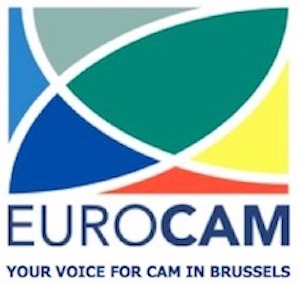What is Integrative Medicine? Integrative Medicine and Health - the position of EUROCAM
EUROCAM subscribes to the concept of Integrative Medicine and Health which has become a paradigm shift in the way healthcare is delivered to patients. Currently, there is a Consortium of over 60 academic health centers for Integrative Medicine and Health established in association with academic hospitals in North America – the Academic Consortium for Integrative Medicine and Health[1] – and a growing number of centres in Europe and Australasia.
The term integrative is used to indicate a collaborative, multidisciplinary approach that requires the application of the best options from different healing systems —that is, experts from a variety of biomedical and CAM fields focus the diagnostic and therapeutic strengths of a combination of systems into a comprehensive and individualized treatment strategy that encourages patient participation[2].
Integrative Medicine and Health has the following characteristics:
1) Patient-centred care and focuses on healing the whole person—mind, body, and spirit in the context of community.
2) Educates and empowers people to be active participants in their own care, and to take responsibility for their own health and wellness,
3) Integrates the best of biomedicine with a broader understanding of the nature of illness, healing, and wellness,
4) Makes use of all appropriate therapeutic approaches and evidence-based global medical modalities to achieve optimal health and healing,
5) Encourages partnerships between the provider and patient, supports the individualization of care, and
6) Creates a culture of wellness.
In the ideal situation, the patient and the integrative practitioner are partners in the effort to develop and implement a comprehensive treatment plan for issues that extend far beyond the immediate chief complaint and/or conventional diagnostic category. Truly integrative medicine draws from conventional and alternative techniques to facilitate healing and to empower the patient because healing is believed to originate within the patient rather than from the physician.
Integrative medicine implies that a competent practitioner will have an understanding of several different medical models including biomedicine and one or more CAM modalities. The basic medical principle, originally ascribed to Hippocrates, ‘Primum non nocere’ (or: Primum nil nocere) meaning ‘First, do no harm’ should automatically ensure that the practitioner gives first preference to the safest and least toxic treatment options. In integrative medicine holistic wellness care would be first-line medicine, with the high-tech specialists serving as the line of last resort, especially in case of life-threatening disease or the presence of irreversible tissue damage.
Personal responsibility and patient empowerment
Staying healthy and preventing disease requires the development of personal responsibility and involvement. The concept of self-care requires a conscious focus on and understanding of one’s physical, mental and emotional state and the ability to take corrective action when necessary. Helping patients to develop sufficient levels of self-awareness and the know-how required to change unhealthy patterns of behaviour to improve their health is remarkably empowering for the patient. In the first instance, this will enable a person to self-correct a relatively minor health problem. If the condition is more serious it may be necessary to consult a healthcare professional who can work with the patient to take the steps required to recovery. In this way, the patient is not a passive participant; the patient and healthcare professional cooperate as partners.
Holistic approach
Integrative Medicine is based on a holistic, or ‘whole person’ approach, i.e. how the physical, mental, emotional, and spiritual elements of an individual are interconnected to maintain or regain wellness and health. Holistic approaches focus on the whole individual person rather than just on the illness or a diseased part of the body. They fully involve the patient in the diagnosis and management of his/her illness. Many aspects of a patient’s life may influence a health problem and understanding the ‘whole individual environment’ helps to develop a successful treatment plan. The aim of holistic therapy is to restore harmony of body, mind and spirit.
Therapeutic relationship
A positive functioning partnership between the patient and the healthcare professional engages the patient’s innate healing capacity and provides motivation to make healthy lifestyle changes. Such a positive therapeutic relationship should not be dismissed as a ‘placebo effect’ or a ‘good bedside manner’. In their encounter with CAM providers, citizens particularly value the following:
- Empathetic communication in consultations with more time available than in biomedical encounters.
- Involvement in their own care through participation in decision-making about their treatment options and the provision of self-help strategies.
- Whole person approach and person-centred healthcare.
- Explanatory frameworks within which to explore health and illness, which are frequently congruent with citizens’ own ideas about health and illness.
Sources:
[2] Rees L, Weil A. (2001) Integrated medicine. British Medical Journal, 322(7279):119-20
